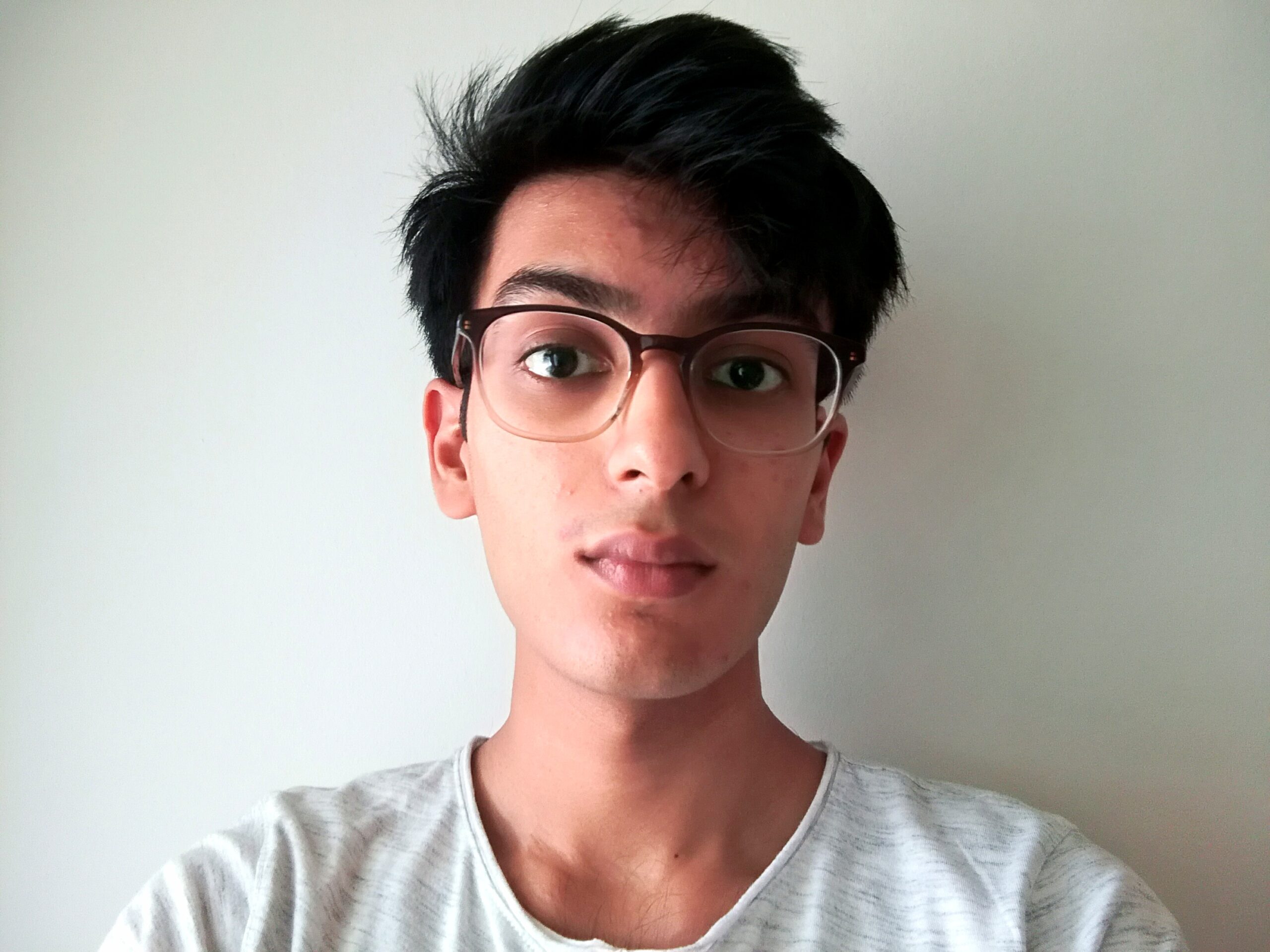Once he was done with the evens, Rob did the odds. The blue bins were out, a few windows open. He put his raincoat in his nearly empty bag.
‘We’ll meet again when hills are green, in another time and place,’ he sang as he did 49. He didn’t know the next line, so he hummed his way to the chorus. 51, 53, 55. He was picking out a parcel for 57 when someone started to play the piano across the road.
It was an old upright in good nick put out a week or so ago. Why anyone would want rid of it, God knows. But the left leg was bike-locked to 58’s gate so it wasn’t for the taking. It was the first time Rob had seen it played and this kid wasn’t half bad.
Rob had forked out an arm and a leg on lessons for his little one, though she never did get much further than Chopsticks. Would she call this a big enough reason to call? You’ll never guess what: a piano out on the street! Probably not, she was likely busy. He walked on, past 57, singing:
‘I’d trade a year in heaven for a day with you my dear.’
Jamal was up for killing time.
He rested his fingers on the keys, playing silent notes, waiting for the 90 to go. Clicking his knuckles, he looked left and right, checking the street was clear before voicing a chord. He closed his eyes, feeling his way from note to note, tapping a beat on the pavement with his Airs. His hands jumped over the keys with a Fats Waller pomp – a refrain returned, wonky like Thelonius Monk, drunk. In the swing of things, he grinned like Ray Charles and, over the static of traffic, looped a Dillalude, gliding into a Soulquarian groove. Melodies came and went like passing thoughts and cars, with their windows down to let out smoke, slowed to hear him hum Badu over ‘The Twelfth of Never’. As they drove off he worked up to a Funkadelic-esque solo, his hands dancing across the piano like Bojangles down the stairs.
Priyanka’s bus pulled up at the stop. Her album had finished, but she could still hear music – she looked out of the top deck window, there was some guy playing a piano. He was proper in the zone. She unplugged her earphones and filmed him, adding it to her Snapchat story.
Seeing him play brought back all those hours practising at school. She’d started to hate piano back then, but wasn’t gonna lie, kind of missed it now. She’d saved up for a keyboard when she started work, but the money went on rent. Here, though, was a piano one stop from home and, she guessed, free to play. She’d come by tomorrow and give it a go, rain or shine. The bus pulled out and she glanced at the house behind the piano, the open window, the silhouette in the net curtains.
Reggie stood in the family room listening to the music. The piano was Viola’s. He’d given everything else of hers away, but the piano had remained, silent for four months.
It started with a cough.
‘Must be something going around,’ she’d said, coming in after a smoke.
When she woke him in the middle of the night, having a coughing fit, he went downstairs to get her water. He came up and she was kneeling over the toilet, spitting blood.
They went to the GP. They went to the hospital. A mass on the CT: Stage 3B.
Two weeks later, he went to a routine check up – they found a lump. He’d left Vi at home, sleeping. But when he stood on the doorstep, he could hear her playing her piece upstairs. He put his key in the door but didn’t turn it. He just stood there, listening to the music.
‘I have prostate cancer,’ he said to the door, practising. His brain was a sieve, he’d forgotten most of what the doctors said. But the words ‘prostate cancer’ stuck in his head, lumpy and gnarled like a half-chewed pip. He repeated his line to the door. It opened.
‘I thought I heard your voice. How’d it go?’ she said, giving him a kiss.
They were stunned for a good week. Their daughter, Janelle, came down to help out.
As bad as it sounds, Vi would say, when friends asked. But, you know how it is, Reggie would say, knowing they didn’t. It is what it is.
After the initial shock, they got into a routine. Together, they learned to smile again, to laugh again. Vi got them out and about, filling up the calendar with all sorts. But she got worse, quickly, and Reggie picked up the slack. When Janelle was at work, he sorted out Vi’s medication, took her to appointments. He ordered his days around looking after her, finding a strange joy in cooking their meals, cleaning the house. There were still bins to take out, grass to cut. He could find respite scrubbing tiles, relief scouring mould from grout. After living a full life together, they would die together. It was ideal in a way; he couldn’t bear to live without Vi and there was something consoling, romantic, even, in the thought of dying in each other’s arms. Or at least in conjoining beds. But in reality, she was kept on a different ward in a different wing.
When Vi was admitted, Janelle took Reggie to visit. They sat there like two miscast actors making dog meat of her parents. She’d never seen them so quiet. Janelle could handle looking after them at home, where the kettle was always on the boil and music on the stereo. But shuttling between Dad’s chemo and Mum’s ward was hard. The smell of disinfectant, the vending machine meals, the harsh light that left no shadows. Then Dad was taken in: a routine procedure. Janelle tried to get the management to move them closer together, but there was something or other. So Janelle split her time between them and all they did was ask after one another.
‘She’s doing okay. But I’ve just got here Dad. I want to hear about you.’
‘Yes, but—’
‘How do you feel?’
‘Not awful, actually. And your Mum?’
Looking after them kept Janelle busy, and if she stayed busy she could keep it all together. Things were worse when she got a moment to herself, on the bus home, listening to music or making her childhood bed in that quiet house.
She taught them to use FaceTime and they talked all night, like the old days. The connection in the hospital was off and on. Whenever the call buffered, Reggie hung up and called back. They picked up where they left off, going through old stories, playing the hits. After years of marriage they knew them all by heart. But they were like old songs, when they came on you couldn’t help but sing along. Vi did the one when she got her foot trod on by Nina Simone. Reggie that one about the salmon.
The connection cut. Vi froze, lit blue by her screen and pixellated. Reggie hung up and redialled.
‘Where was I? Oh yeah, so I climbed through the window—’
‘Some might say fell.’
They were twenty again, talking all night. The first signs of the sunrise filled their rooms.
‘Sing the sun awake.’
‘I’m okay,’ Vi said, she always did this dance.
‘Come on, you don’t even have to do the words. Sing that one you wrote.’
‘You oughta start paying me for this, you know.’
She sang her song under her breath. People were sleeping. Her voice was quiet and fragile, worn down by the cancer, but still perfectly clear, like thin ice. There was a lag in the connection and he watched her mouth move a second or so before any sound came out – like she was miles away. She froze.
He called back, but as the nurses changed shifts and the ward lights flickered on, the connection only weakened. Reggie kept refreshing. He called and called until, after what felt like a lifetime, a doctor answered.
Reggie was in remission in time for the funeral.
The day passed as it usually did, both slow and quick. When it rained, Reggie went out with two rainbow-striped umbrellas and attached them to the piano. The rain cleared up and the sun returned, casting coloured shadows across the keys. He went out to bring the umbrellas in. A little weaker than usual, he slept on the sofa, too tired to close the window.
He was woken by the piano in the middle of the night.
Mo still knew the intro to Still D.R.E.
‘If you ain’t up on thangs,’ he sang.
‘Wallah, if you don’t shut up,’ Abdi groaned. They were waiting for the 90 with nowhere to go. Mo sat on the piano keys, like in the movies. Gujan kicked him off to play the Mario theme tune. Abdi was streaming DOOM.
Mo took his keys and started to carve into the wood. His trademark ‘OM’ could be found all over school, written in textbooks, etched into exam hall desks and sprayed on the bike shed. Younger years had taken to adding extra letters to Mo’s tags, e.g. OMG, MOM, OM NOM NOM, etc.
‘Allow it man,’ Abdi said, skipping through songs on shuffle.
‘It’s an artistic statement,’ he said, all grandiose, mid-O, his keychain bottle-opener clacking against the wood. ‘It represents like spirituality.’
The 90 came before he could start on the M, and they went up to the top deck laughing at something.
Happy was off on one.
‘I work all day, I deserve to come back to a nice quiet home,’ she said, watching the bus go.
‘Can we just go back to sleep?’ her husband said. She was doing that thing with her teeth.
‘That’s the point. I can’t sleep. Because some idiot’s playing that bloody piano.’
‘They’ve already stopped.’
‘I worked overtime today, you know.’
‘…’
‘In one ear I’ve got the patients effing and blinding and in the other there’s Janet’s endless Christmas music. We haven’t even binned the pumpkins! So I say, Janet, mind if we have a break from all the noise? Scrooge she calls me. Me, who can’t even put up a few lights for Diwali. Me, who, no thanks to Janet, does all the work around there. While she’s off buddying up with the patients all day, chatting bakwas.’
‘Happy—’
‘And then,’ she took a breath. ‘I come back home, driving up and down this damn road looking for somewhere to park and open the door to two children always screaming the place down, or else shooting shooting shooting. And now, as soon as I get some time to myself, when I sleep, it’s more noise. Can you see why I’d want some peace, some quiet?’
‘Oh believe me Hap, I can.’
‘Great. Make me the bad guy.’
‘It’s teenagers being teenagers.’
‘It’s two in the morning. It’s not so much to ask: a little peace. Believe you me.’
Happy went next door before work. Reggie was already outside, taking the umbrellas down.
‘Five years I’ve been a good neighbour, no? Always quiet. I’ve gotta ask…’
‘…Reggie.’
‘Yes, Reggie, what’s with this piano business?’
He paused. ‘My wife died.’
‘Right, but the noise at two in the morning?’ ‘Well, I wanted it put to good use so—’
‘You call that good use?’
‘Well—’
‘It’d be great if you took it in today.’
‘I actually planned on—’
‘Thanks.’
Happy walked away, followed by the postman, humming.
‘You live with a Mrs V Campbell?’ Rob asked the old man with the umbrellas, standing outside his house.
Reggie took the letter up to Vi’s study. Something from the OU. The room had barely changed over the months. There were still indents of the piano feet on the carpet, still rings of tea on the table, blue-tack marks on the walls. The only difference was that Janelle had set up her old bed in the corner, for her weekend visits.
He put the letter in a drawer and picked up the neat pile of sheet music Vi had left out on her last visit home. He couldn’t read music, but once a week, without fail, he pored over the piece, page by page, tracing the shapes of the notes with his finger, as if reading braille. For the life of him, he couldn’t bring back the tune.
He crossed off today in the calendar. It was personalized – his last Christmas present to Vi. He flicked back to January. It was filled with her colour-coded notes. Social green. Work blue. Dr red. He turned to February: Hanif’s 60th :), Jello coming down. March: Reg’s Bday!, check up 3pm, piano tuner. April: Dr Mukherjee 11, bank, Dr M 4.30. The rest was empty.
Above each month was a photo. Reggie’s favourite was August: Vi all dressed up for Notting Hill ‘84, smoking, a couple of months after they first met.
Reggie was staying on a friend’s sofa when he first heard her. The walls were so thin he could hear every note, each soft thud of the pedals, the odd creak of the woodwork. His friends complained about the constant noise but when the neighbour played he tuned them out.
A few weeks later, he found his own place and, on the way out, thought what the hell? He knocked on the neighbour’s door. There was an unbearable pause – he wanted to knock again in case they hadn’t heard, but didn’t want to sound impatient in case they had. He knocked, it opened.
Whenever he told people how they met, Reggie would say: ‘Now, I was expecting anyone. Could’ve been some guy, some old granny. I was knocked off me damn feet when Vi opens that door.’
And Vi would say: ‘I thought it was the postman or something. And I stayed damn well on my feet seeing that sorry sack of bones.’
‘Of course I took him out,’ she’d say when asked about their first date. ‘Otherwise we would’ve ended up at his local.’ They saw Orfeo Negro at the BFI and walked up and down the Southbank afterwards, their words misting up in front of them.
‘Sleep’s for the dead,’ they said when they missed the last train. They walked and walked, talking all night and taking the first tube the next day, they sang the sun awake.
After that, they met at Carnival rehearsals. Vi was in a choir, Reggie was playing some drum. He’d never been to Notting Hill before, never played an instrument before – ‘but if it meant seeing Vi every week,’ he’d say, ‘I would’ve done a damn drum solo wearing nothing but sequins and feathers.’
The procession itself was a blur. All he knew for sure was that he ended up with Vi, sat between two overflowing bins, sharing a Red Stripe, planning a future together.
Marriage happened. And Janelle. Then the redundancy; the downsizing. The piano was pawned. Word of mouth got Reggie some work. Things turned for the good, for good. A few anniversaries later, he bought back the piano. Vi went part time at work to take an OU course in music. She put the piano in Janelle’s old bedroom and spent most evenings practising. Reggie left her to it, content to sit and listen through the wall.
Someone started playing the piano. He went downstairs and, out of breath, watched through the net curtains.
Priyanka flicked to ‘Manha de Carnaval’. The wind kept turning the pages. The day before she’d dug up her old music books from school. She could barely recognise the neat little notes in the margins as her own. Was that really how she used to write? Where did it all go so wrong? Her problems were so small back then, that piano exam her biggest stress.
She sat with her back straight, hearing her teacher’s broken English. She played a few warm up runs, jazzed around with some scales. Then, like a wind-up toy, she let loose with perfect timing, precision and poise. Still got it, she smiled. She topped the Bossa rhythm with a flirtatious melody and from the medley of notes two phrases emerged, like dancers in a crowd, circling each other. The wind blew the pages to another song but she carried on, pulling out of the chord progression to two lines of melody repeating and repeating, like two singers left behind by the procession, not yet done celebrating.
A little girl on a scooter pulled up to stop and listen.
Ayan liked the piano lady. She listened a bit before scootering off super-fast. She stopped, looking left, right, left, right. No cars! Then she scootered super-fast down the straight bit where she didn’t need to push. Stop. Button.
‘Someone’s singing Lord, kumbaya.’
Mum had it up to here of her practising for assembly, so she was killing two birds. Green man wake up! She scootered semi-fast up the up bit, near where Dad lived.
‘Someone’s crying Lord.’
When she reached Dad’s road, she turned back. This was as far as Mum let her go.
‘Kumbaya, kumbayakumbaya.’
Now the up was down and the down was up. ‘Someone’s praying Lord.’
At the corner, near the piano lady, there was a man sitting on the floor, nodding his head, tapping his toes. Ayan scootered past super-fast.
Jamal had seen the woman at the piano from the bus stop. It was the first time he’d seen anyone else on it. She was brilliant, he was nervous. He wanted to listen but didn’t want her to see him, so he sat within earshot, out of view. What were the odds someone in his ends would be as into piano as him? And, though he hated to admit it, what were the chances of her being so fit? Then again, how often did someone leave a piano on the street? She switched key, sped up. He had to do it, he had to. He walked up to her. She was flicking through her sheet music.
‘You’re really, really good,’ he said, somehow.
‘Yeah? You play?’ she asked, knowing the answer.
‘I guess.’
She stood up and he took her seat, his hands unsteady. He stumbled his way through ‘I Fall In Love Too Easily’. She hummed along. He did his version of ‘If The Moon Turns Green’ and, leaning over his shoulder, she added a melody. He hit the odd bum note, nervous – he was rushing, he was sure of it.
She pretended not to notice. Priyanka couldn’t help but think, as she harmonised, that this could be a story she might tell one day. This weekend to the girls, maybe in a month to her mum – who knew, who knew?
It started to rain and they made to leave. But they had to walk the same way, for a while at least, and they got talking.
Reggie came out with his umbrellas. He was determined not to have a speck on the woodwork – he’d already had to fill in some circle scratched on the side, had to clear up the crumpled cans of Tyskie someone left near every night and bin the laughing gas canisters that some kids had taken to throwing at the keys. These little tasks filled his days, days that were more or less the same – save for the rain.
In one week, Happy had been over twice, making a song and a dance about the noise. But Janelle, down on the weekend, had spoken to her – Happy could park in their driveway if she laid off the piano.
Janelle delved into work after her Mum’s death. She kept busy, staying at the office late most days. She’d been offered a promotion, a move up north, but had turned it down to be close to Dad. They didn’t talk much on her visits. They just went about their business; she caught up on paperwork and he read and reread the news. It was like they were extras in the background of a scene, told to act natural. But with the main actor out of frame, it was clear that there was something exaggerated and false about their actions.
Dad was a different man without Mum around. Things were so quiet. There was one time, eating dinner in front of the TV, when, for a second —and it really was only a second— she thought things might be better if it had been the other way round. Well, obviously she wished they could both still be here. But she had always been closer to her Mum. She loved her Dad to bits, of course, but the man sat next to her was barely him any more. The only times she saw him perk up and act a little more like his old self were when his favourite piano players were outside.
They had started to meet together at the piano, playing back to back, and Reggie looked forward to whenever they came. He had decided to go out and talk to them today but that was yesterday and now it was raining. He took out the umbrellas, using one as a walking stick. Tomorrow went as soon as it came. One of them was playing again. He struggled to the door.
Jamal got there first, just as it started to spit. They met after work, sometimes taking the same bus. It was the third day in a row, was that a bit keen? Should he dial it back? He checked his hair in the window of a parked car and sat at the piano. She was normally here by now, maybe she wasn’t coming. Had he scared her off?
Priyanka got off the 90. There Jamal was, right as rain. How long would they carry on like this, needing the piano to meet up? She couldn’t read him. Was he into her, like legit? Or was it just the music? He turned and saw her, making room on the small stool.
Reggie found them sat together. He fumbled with the umbrellas.
‘Perfect,’ he stopped to catch his breath. ‘I’ve got to say, I love how you two play.’ They looked at each other.
‘I’m Reggie. The piano was my wife’s.’
‘Really nice of you to let us use it,’ Jamal said.
‘Yeah, I haven’t had one to play since school,’ Priyanka said.
‘Well that was the dream. Couldn’t bear for the thing to go to waste.’ Reggie said, feeling so tired he had to lean on the piano. ‘My wife wrote this before she died,’ he pulled out a copy of her handwritten piece. ‘I was wondering if you could give it a try.’
Priyanka took the lower half and Jamal the higher. They started slow, the high notes responding to the low. The lull between chords filled with the sound of rain on the umbrellas. There were sections where only Priyanka would play, and Jamal would follow the notes on the paper, scared to look down at her hands, across at her face. And then, Jamal would start, stepping between notes like an actor out onto stage. For the most part, their sections were separate but as the pages turned, their hands got closer together. Priyanka did a run up the piano and Jamal one down; their hands crossed over, their wrists touching. Jamal, all staccato, plucked out a quickening melody as Priyanka rumbled frantically from chord to chord to keep up. For a moment, their feet met on the pedal and the beat fell in tempo. They worked their way back up and, following Vi’s colour-coded writing, ended with a crescendo. Their separate motifs fell into line and, a few octaves apart, they played the same notes.
‘From the top?’ she asked, though he’d already begun – counting them in as she watched net curtains dancing through a window, wide open despite the rain.
Reggie sat with his back to the wall under the window, his hair soaked through, glistening. He closed his eyes and listened – all of it coming back.
Water bounced off the green bins. The streetlights turned on all at once, the puddles yellow on the concrete. The couple left together. The rain stopped. But the umbrellas remained and when, the next day, Rob walked up the evens, he thought, well that’s an odd sight if ever I’ve seen one. The umbrellas gleaming bright in the unseasonal sun, as he walked on, humming.





4thestatebooks